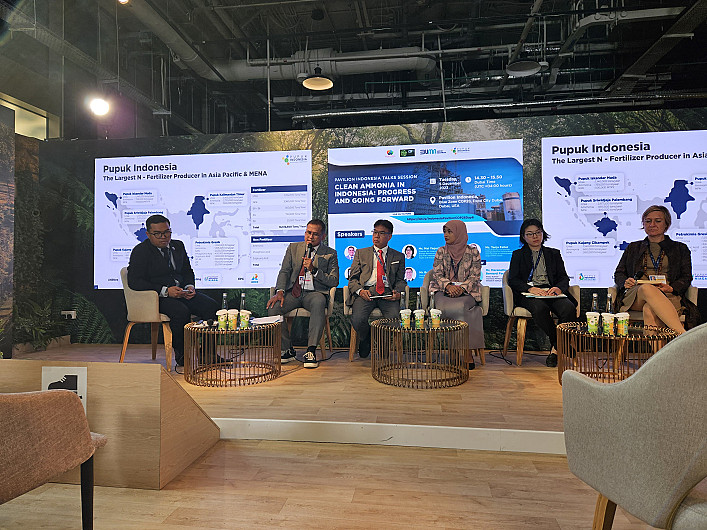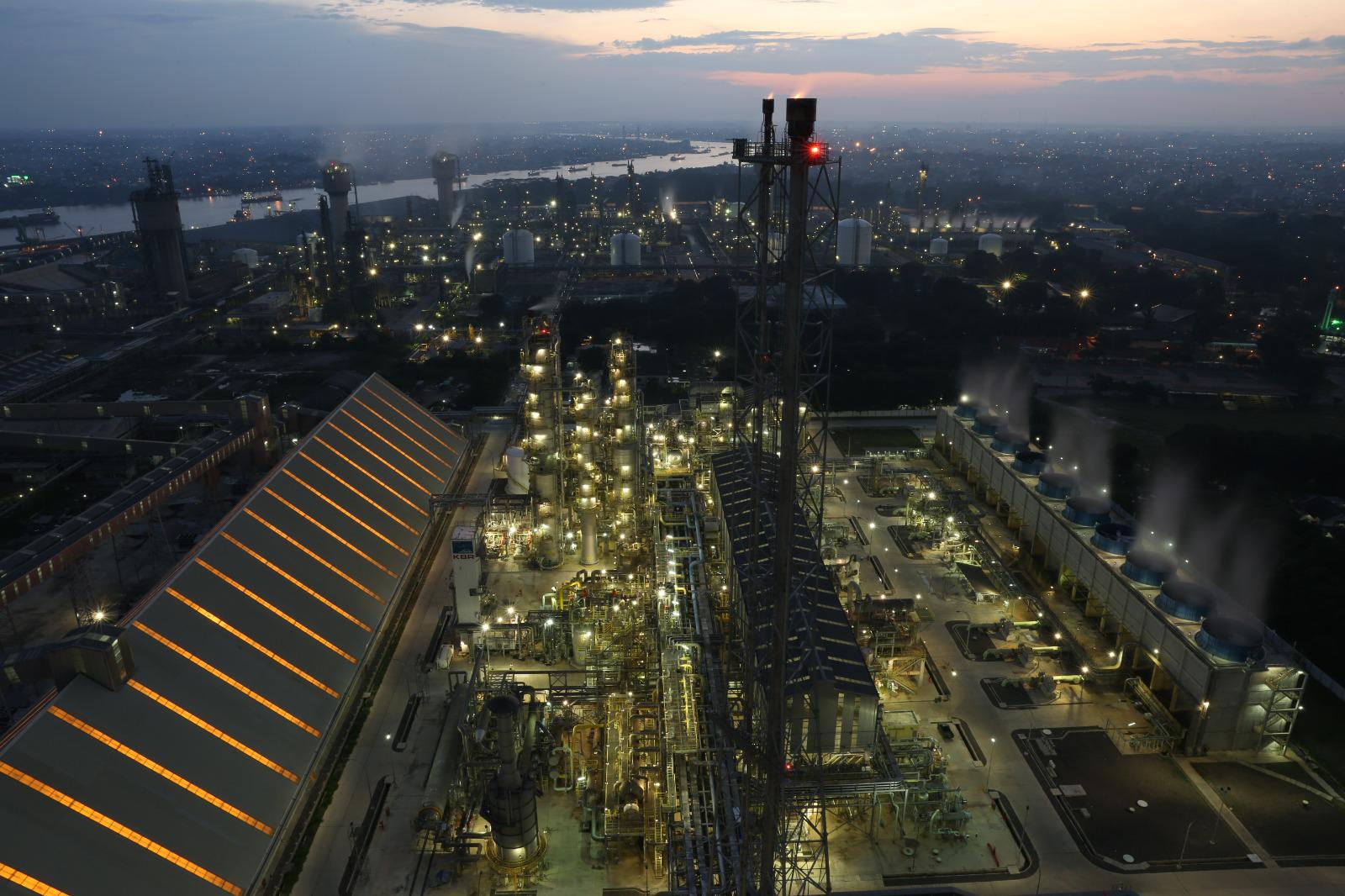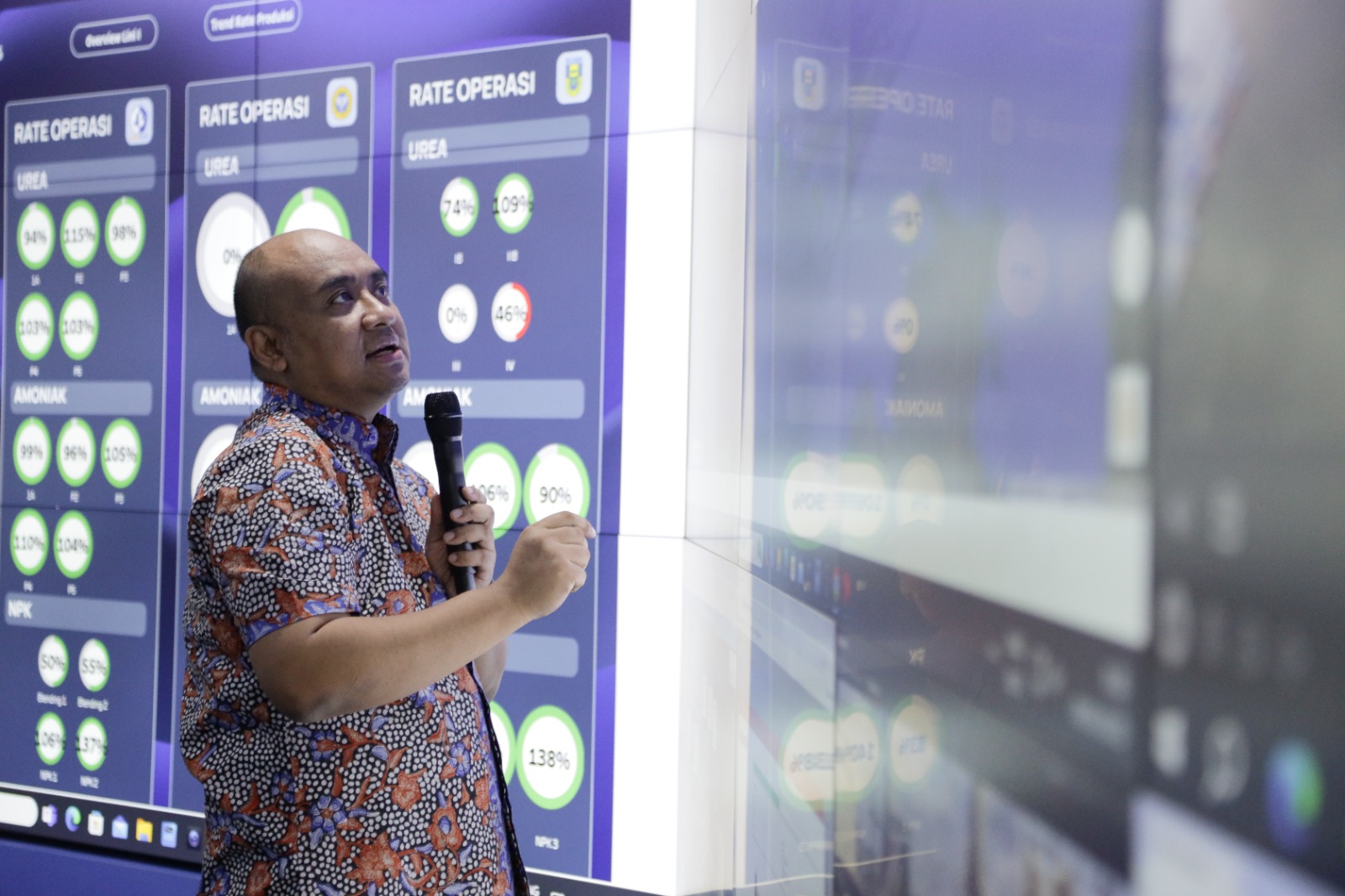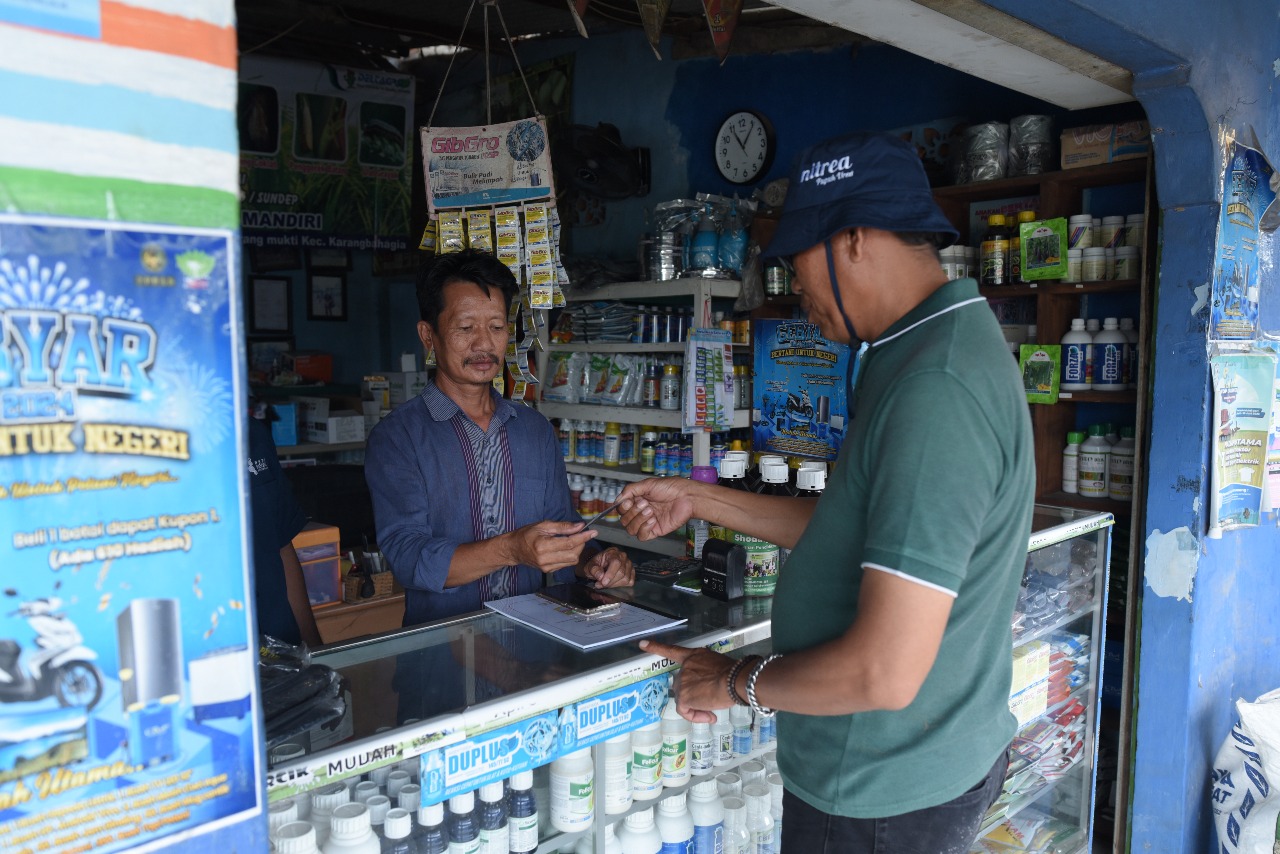Pupuk Indonesia Siap Jadi Pemain Utama Clean Ammonia

DUBAI – Direktur Utama PT Pupuk Indonesia (Persero), Rahmad Pribadi (kedua dari kiri pada gambar di artikel ini) mendukung komitmen global dalam Konferensi Tingkat Tinggi PBB untuk mengurangi emisi karbon dunia atau 28th Conference of Parties (COP28). Hal tersebut disampaikan Rahmad pada sesi diskusi dengan tema Clean Ammonia di Pavilion Indonesia, Dubai, Selasa (15/12/2023).
Dalam kesempatan tersebut, Rahmad mengungkapkan bahwa Pupuk Indonesia saat ini adalah pemain utama amonia di Asia Pasifik, Timur Tengah, dan Afrika Utara. Pupuk Indonesia menguasai empat persen produksi amonia global atau sekitar tujuh juta ton per tahun, yang seluruhnya adalah grey ammonia atau masih menghasilkan emisi karbon.
“Sehingga aspirasi kami saat ini adalah melakukan dekarbonisasi bisnis eksisting, dan pada saat yang bersamaan mengembangkan bisnis baru, yaitu clean ammonia,” jelas Rahmad.
Adapun tujuan utama pengembangan clean ammonia, lanjutnya, adalah untuk mewujudkan industri pupuk dan kimia yang rendah karbon. Sejalan dengan komitmen global, Rahmad menyebutkan Pupuk Indonesia telah berhasil menurunkan emisi karbon secara nyata, yaitu sebesar 1,55 juta ton atau di atas target 1,21 juta ton pada tahun 2023.
“Penurunan ini berasal dari optimalisasi dan efisiensi konsumsi energi, utilisasi renewable energy, co-firing bio massa, solusi berbasis alam, hingga revitalisasi sejumlah pabrik pupuk,” tambah Rahmad.
Sejalan dengan inisiatif tersebut, maka ke depan Pupuk Indonesia akan mengembangkan amonia yang lebih rendah dan bahkan nol emisi karbon. Adapun amonia bersih ini terdiri dari blue ammonia dan green ammonia. Serta secara jangka panjang akan mengembangkan green methanol.
Menurutnya, pengembangan clean ammonia sejalan dengan potensi Indonesia sebagai hub Carbon Capture Storage (CCS). Karena implementasi teknologi CCS di Indonesia berpotensi dapat menampung 4,3 giga ton karbon. Pupuk Indonesia juga terlibat dalam pengembangan teknologi CCS di Aceh dan Lapangan Abadi Masela.
CCS sendiri merupakan teknologi yang mampu menangkap emisi karbon di udara dan menyimpannya dalam sebuah storage. Selanjutnya emisi karbon disalurkan dan diinjeksikan ke sumur minyak dan gas tua untuk meningkatkan produksinya.
Selain teknologi CCS, pengembangan clean ammonia di Indonesia juga ditopang oleh potensi renewable energy sebesar 3.700 giga watt, dimana yang terbesar berasal dari tenaga surya. Energi bersih ini menjadi sumber utama untuk menghasilkan green hydrogen, yang kemudian dapat dikonversi oleh Pupuk Indonesia menjadi green ammonia.
“Pupuk Indonesia memiliki sumber daya yang memadai untuk pengembangan clean ammonia. Mulai dari fasilitas eksisting untuk konversi green hydrogen menjadi green ammonia, keahlian dan pengetahuan dalam memproduksi amonia, pengalaman mengelola dan mendistribusikan amonia, hingga memiliki Kawasan Industri Hijau di Lhokseumawe, Aceh,” jelas Rahmad.
Dengan potensi dan keahlian tersebut, lanjutnya, Pupuk Indonesia telah menyiapkan roadmap pengembangan clean ammonia. Pada tahun 2023-2025, Pupuk Indonesia menyusun rencana dan Final Investment Decision (FID) pengembangan blue ammonia dan green ammonia. Pada tahun 2026 akan memulai konstruksi pabrik clean ammonia di Jawa Timur dan Aceh. Pada tahun 2028 mulai mengoperasikan pabrik green ammonia dalam skala kecil. Dan pada tahun 2030 mulai mengoperasikan pabrik blue ammonia dan utilisasi teknologi CCS.
Pengembangan clean ammonia akan semakin besar pada tahun 2050. Pada titik ini, Pupuk Indonesia diharapkan sudah dapat meningkatkan produksi amonia dari 7 juta ton per tahun pada tahun 2023 menjadi 12,9 juta ton per tahun pada tahun 2050.
Menurut Rahmad, pengembangan ekosistem pendukung clean ammonia ini sangat penting. Karena selain mendukung kelancaran pasokan bahan baku pupuk, clean ammonia juga dibutuhkan sebagai sumber energi bersih masa depan. Namun dalam pengembangannya terdapat sejumlah tantangan, seperti kepastian regulasi, kelayakan secara ekonomi, teknologi, hingga infrastruktur pendukung.
“Oleh karena itu kami siap berkolaborasi dengan berbagai pihak untuk mengembangkan clean ammonia di Indonesia. Mulai dari kolaborasi untuk pengembangan renewable energy yang terjangkau, teknologi, fasilitas CCS, logistik, termasuk berkolaborasi dengan para pembeli potensial,” tutup Rahmad.







